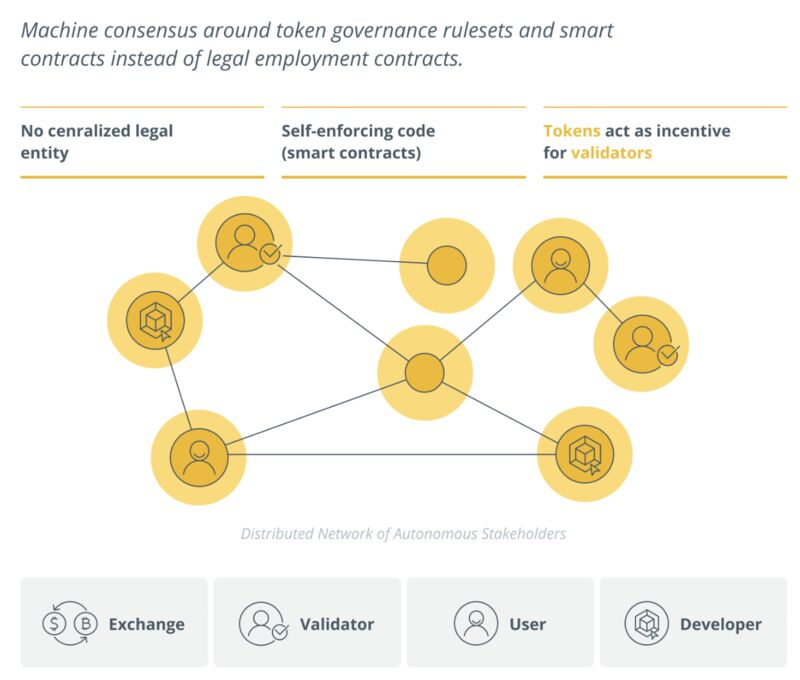Top 100 address/nodes hold 39% of Ether on the Ethereum network, and 14% on Bitcoin network. Ownership on these networks is directly proportional to influence they have.
This isn’t exactly decentralised.
Decentralisation on public #blockchain networks is considered as a progressive attribute, so statements like, “Bitcoin network is more decentralised than Ethereum” are common.
The governance of these networks, even besides the two most popular ones is being done through #DAO, Decentralised autonomous networks.
A DAO is an entity without hierarchy, which is used to govern networks, they form rules and policies which are written and executed using #smartcontracts. Users participate and are incentivized through ownership/issuance of tokens.
Now even though this is not controlled by one individual, or organisation, the control is with a limited number of owners.

Then there is an issue of the technology and infrastructure on which the chain and nodes are hosted on. Apparently around 60% of the nodes on Ethereum are hosted on AWS.
Even though this infrastructure is not truly decentralized, I still believe this is better than the traditional infrastructure, where the control is with one or a few organizations which offer limited transparency.
Freedom, democracy in finance (and other spaces) is the most fundamental need that this change aims to solve.
Having said that, still a lot of work needs to be done, but I am excited for the future.

